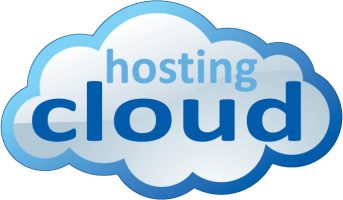Cloud hosting has taken off in a big way in the last few years and has helped to make many businesses both more innovative and more efficient. But is hosting your files in the cloud enough or should businesses be going one step further? Well, many experts believe companies and especially large organisations need to think more about the basic concept of cloud computing and how they can use it to improve.
Many businesses have looked at using Cloud Hosting options for their company websites to offer the maximum levels of performance and flexibility; many are still not making full use of the Cloud.In other areas of their business to improve efficiency and working practices and to adapt to their changing needs.
Must Read: Common Security Risks With Cloud Computing
The notion of companies being run from an office on a nine to five basis has long gone. Businesses need to be more dynamic and more responsive to the needs of their customers and – in turn – so do their staff. Working patterns have changed dramatically in recent years, and staff are no longer working set hours or are even just based in the office.
Being able to work away from the office is essential but accessing systems, files and software is vital. The days of staff using laptops and transferring files onto USB sticks are no longer practical – there will be times when staff may be home based, working at other locations or even need to work on the move – so something more efficient needs to be available.
The Cloud can offer options for most business needs and with no greater financial impact than traditional solutions. Keeping in touch with your office can be managed quickly and easily with any of the Cloud based email services available. Either linked in with your website hosting package or using a separate email service, you will be able to access your email anywhere using a standard web browser, even with a tablet or smartphone as long as you have an internet connection.
If your company has need of a CRM System then you should start to look towards Cloud alternatives for this as well. While there are a large range of packages on the market, Cloud alternatives are quick to set up while still offering the same level of power and flexibility as self-hosted systems.
Must Read: Introduction to Top Five Cloud Computing Security Issues
If your mobile business needs go beyond having to access a CRM System, there are Cloud based options for most packages at your disposal should you need them, with free and enhanced paid-for alternatives. Microsoft have two versions of Office available – Office 365 which is a full cloud version of Microsoft Office and Microsoft Office Web Apps. While the latter features cut-down applications, it still provides full Office compatibility.
Google, through the use of their free Google Apps service, also provides Microsoft Office compatibility and both providers also offer free cloud storage where you will be able to store documents you are working on, so you can access this on the move or share work with colleagues (Google Drive and Sky Drive respectively.).
If you do need larger amounts of storage or need to share larger files between work groups, then dedicated Cloud storage would be a better solution. One of the leading providers for this is DropBox and you can store 2Gb of data of any type, setting up an initial group of up to 5 users. These groups and storage space can be increased, with a premium to be paid, to any size dependent on your business need. Critically, it ensures that any of your staff with access to this shared storage will be able to use the latest version of any document stored online no matter who has worked on it.
The use of the Cloud and its potential is far greater than businesses give it credit for, and given enough planning and consideration you will find that you can move most of your essential IT needs to the Cloud and your company will be all the better for it.
